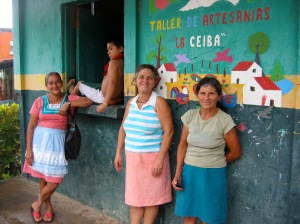I jot this down as I’m sitting on the bus, trying to figure out what it is that I’ve experienced that could be called culture shock. Apparently it’s supposed to be a negative, uncomfortable thing. But I wouldn’t confine it to only that. There have been plenty of surges of emotion for me, both good and bad. There have been moments of literal shock. But more often it’s just a quiet kind of confusion.
There are some things that I would never be able to get used to. Children sleeping sprawled on the pavement of the streets, begging desperately, constantly, for money. What’s most shocking is the lack of compassion shown towards them. A little girl, ten at most, rides a hand-made skateboard barefoot through traffic , holding her hand out to people with open windows. People shake their heads, no one gives anything. I’ve been told not to offer money since it encourages begging. But when kids clearly are clearly suffering, gaunt and filthy, it’s hard to turn away.
There are also things here that will never cease to impress me. The work ethic of the people, especially of the women here, is astounding. Whether it’s families I’ve met, or just people I see on the streets, everyone is working themselves to the bone. The things that women manage to balance on their heads, usually while carrying or herding a couple kids, is astounding. I’ve seen: a huge bundle of branches, a full size cooler, a potted plant, a ceiling beam (8’x4”x4”- no shit) and many, many baskets.
There have been some hard moments. One of my first Sundays here I had to force myself to leave the house. I was tempted to stay in bed all day since I knew it was safe there. Sundays are extra creepy because the streets are empty and almost everything is closed. But I got out and felt better for it.
There have been a few frustrations due to cultural differences and language barriers. Most are minor and can be laughed off. But there was one day when I really offended a friend that I really respect. The next day, another barren Sunday, I was racked with guilt and bursting with frustration for my weak vocabulary. We worked it out on Monday and realized it was no big deal, but that Sunday I felt utterly isolated and helpless to make myself understood.
Other jarring, though less heavy moments have been when I am confronted with brash American culture. Let’s talk about Metrocentro for example. While it is actually the most used and least high-class mall here, it’s still a huge adjustment to walk into. Everything is big and shiny. Prices in most stores rival those at home. Being in there for an hour or two, my tolerance for high prices starts to rise back to Canadian level. When I catch myself almost thinking that three bucks for a piece of pizza is reasonable I shake myself back to Salvadoran reality and run to take shelter in a pupuseria around the corner to get a 70 cent dinner.
But even more intense than the mall is watching American movies. No moment has been weirder here than when the lights came on in the theatre after watching Sex and the City and I saw the people around me who had just watched the same film. Average Salvadorans packed the theatre. It was cheap Wednesday. I couldn’t imagine what they would have thought of the film. Sure there’s enough American pop culture that they’re probably used to it, but it is so far from the very narrow reality of this country. And maybe I just get too carried away in the movies, but walking out of the theatre into the night in San Salvador I had to very consciously remind myself where I was, what I needed to do to get home and what was waiting for me when the sun came up the next day.
However there is one bit of pop culture that I grasp onto for all its worth, which is music. Hearing a familiar song is the one and only thing that can make me a little bit homesick. When Neil Young came over the speakers in the supermarket, I almost cried. When Hopelessly Devoted to You came on another day, I had no choice but to belt it out. When Footloose came on in the bus, I stayed on an extra stop or two to hear at least the chorus and had to try very hard to refrain from dancing.
These moments are surreal more than anything else, I don’t even know what to do with them. Ah but that’s all part of the fun. It’s a good thing I like roller coaster rides!




